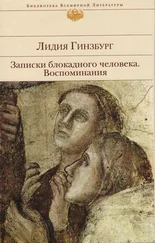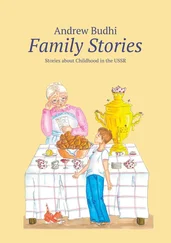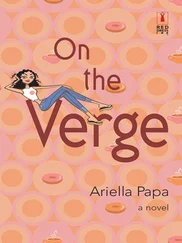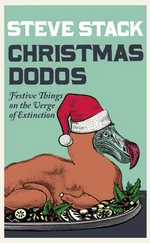Лидия Юкнавич - Verge - Stories
Здесь есть возможность читать онлайн «Лидия Юкнавич - Verge - Stories» весь текст электронной книги совершенно бесплатно (целиком полную версию без сокращений). В некоторых случаях можно слушать аудио, скачать через торрент в формате fb2 и присутствует краткое содержание. Город: New York, Год выпуска: 2020, ISBN: 2020, Издательство: Riverhead Books, Жанр: Современная проза, на английском языке. Описание произведения, (предисловие) а так же отзывы посетителей доступны на портале библиотеки ЛибКат.
- Название:Verge: Stories
- Автор:
- Издательство:Riverhead Books
- Жанр:
- Год:2020
- Город:New York
- ISBN:978-0-52553-487-7
- Рейтинг книги:4 / 5. Голосов: 1
-
Избранное:Добавить в избранное
- Отзывы:
-
Ваша оценка:
- 80
- 1
- 2
- 3
- 4
- 5
Verge: Stories: краткое содержание, описание и аннотация
Предлагаем к чтению аннотацию, описание, краткое содержание или предисловие (зависит от того, что написал сам автор книги «Verge: Stories»). Если вы не нашли необходимую информацию о книге — напишите в комментариях, мы постараемся отыскать её.
A fiercely empathetic group portrait of the marginalized and outcast in moments of crisis, from one of the most galvanizing voices in American fiction. cite
Verge: Stories — читать онлайн бесплатно полную книгу (весь текст) целиком
Ниже представлен текст книги, разбитый по страницам. Система сохранения места последней прочитанной страницы, позволяет с удобством читать онлайн бесплатно книгу «Verge: Stories», без необходимости каждый раз заново искать на чём Вы остановились. Поставьте закладку, и сможете в любой момент перейти на страницу, на которой закончили чтение.
Интервал:
Закладка:
The planetarium had to be thoroughly cleaned every Saturday morning, as the teenagers left all manner of themselves behind, like sticky and worn cultural artifacts. Food, gum, cigarette butts. Condoms and rolling papers. Lip gloss and rubber bands. Plastic drink containers, soda cans, straws, and beer bottles that rolled to the center of the floor and rested there like tiny spaceships, marooned and abandoned.
Ty Conner did the cleaning and had been doing so for the last eight years. He’d learned the species in precise detail, watched them gather there in the dark, recorded their behaviors, kept notes, formed hypotheses. His fascination with social organization and human structure filled his head with bubbles of untamed thought. The teens seemed to carry a world of matter and energy within them. Everything they left behind became something he wanted to save, to sort and arrange into a new thing that was beautiful and true. He wanted to harness and remake their entire existence.
Over time, from the materials they left behind, Ty had built in his home a kind of tiny city, an architecture of their leaving. He commandeered his dining room table and used it as a tableau of their existence, assembling the evidence of teen presence there like a sophisticated model of urban life.
It had started simply enough. He’d found a lipstick and brought it home, mesmerized by the mechanism, its easy rise and fall reminding him of gears or pistons. He’d pictured it immediately as some kind of tower in a building blueprint, not unlike smokestacks from the past, but in this newer, futuresque city it would pump up and down hydraulically, perhaps as a form of energy generation, perhaps as a mode of transport, similar to an elevator but more advanced. That had been the first piece, leading to his first drawings, and inspiring him to collect other objects, more and more of them, each with a distinctive purpose in this new city born of youth.
The teens who swarmed out of the planetarium left things there that they didn’t need or want, things that just fell away from them like artifacts: a cracked iPhone, various vape devices, batteries and atomizers, flasks and old-school silver lighters, hair ties, a Fujifilm Instax Mini 9 in bubble-gum pink, a wireless mobile Bluetooth speaker, a pair of Beats headphones, all manner of water bottles, a worn PS4 controller, a paracord bracelet. When he thought about the objects and the city evolving from them, he was filled with awe; he saw the future bright and beautiful, a future that easily discarded morality and good citizenship in favor of an existence based on liminality and provisional presence, like television waves or information traveling by phone wire or electromagnetic light. It all made perfect sense to him: These beings left traces of themselves in the objects they left behind, they represented a new order of existence, new cultures and superstructures, space travel and cosmic weaponry fanning out into the cosmos. The vacant look in their eyes was not boredom or some residue of millennial apathy. It was the future dulling over ordinary vision. It was the past disappearing like discarded refuse.
No manner of event could draw him away from his obsession. By day he cleaned and at night he worked on the city. Saturday evenings were a watershed of knowledge and a plethora of work: minute, painstaking labor that involved the careful consideration of objects, the fierce action of the imagination, steady hands, and the will to create something from nothing. A bridge crossed a toxic-waste site through a series of elevated tunnels made from cans and paper. Cans of Coke and Sprite and Diet Pepsi connected buildings like commercial passageways. Condoms stretched taut between ballpoint pens created great tents over business and technology centers. The tents had a dual purpose: to house the work within a steady, temperature-controlled environment and to filter greenhouse gases through a complex biochemical procedure into hydrogen-oxygenated by-products, stored in heavy tanks made from water bottles.
One feature he was especially proud of was the garbage ventilation system, by which all manner of waste was sucked down to the underneath of the city and processed into usable fuels. Every social space had great vents at its edges, and all airborne or material pollutants were simply sucked away, three times daily, eliminating trash, pollution, even insects and rodents. After a terrible accident the first year of the program, grates had been installed to prevent small pets and children from being accidentally removed from the socius. Since then the city had only increased in efficiency and beauty. Ty had filled notebook after notebook with drawings and plans detailing systems such as these; sometimes, just before sleep, he imagined historians of the future discovering his notebooks and marveling at his foresight.
Amid these emotions, this daily activity, it happened one Saturday morning that Ty reached down under one of the Destination Sky Planetarium seats with his plastic-gloved hand and found himself holding an arm. At first he thought it was a baguette, like the one he’d found once before along with some molding brie and an empty wine bottle. Then he thought it might be some kind of gag: a summer sausage, a stuffed piece of pantyhose, something. But it was a human arm. Bodiless. The hand intact, stiff and clawing and white. His breath jackknifed in his lungs and his eyes bulged in their sockets and his mind raced: What what what the fuck? And even as he held the lifeless thing in his own plastic-covered hand, he couldn’t get his brain to contain it, to lock on to it in the normal way. He just stood there like a great thick stuffed beast, unable to move or speak or stop looking at it gesturing at him. The arm was stiff and heavy, and his own arm and hand began to stiffen and grow heavy too, as when a limb goes to sleep or the brain forgets its body.
Some part of his mind, far away from conscious thought, had a long conversation about turning the arm in to the authorities, but instead he found himself putting it in the bag he saved for objects to take home with him. He spent the rest of the day in an awkward, herky-jerky daze. He spilled chlorine bleach over the seats in the front row, and the smell of a swimming pool on overload filled the dome, nauseating, a hard ice pick to the temple.
That night he did not work on his city at all. Instead he walked to the part of town where the local kids hung out, until his eye was caught by a teen couple across the street—a boy and a girl, or a man and a woman still becoming. He stopped and pretended to pick up a bit of trash as they entered a coffee shop, the hipster kind with a floor-to-ceiling window in front. He walked over to the nearest trash receptacle and lingered there, watching them. A bunch of teens hanging out together wouldn’t notice a man across the street. He could be a vagrant. He could be anyone. He was as close to being invisible as possible.
What he saw as he watched made his chest ache. The boy put his hand on the girl’s hand. The girl kept looking down at the table and smiling. The boy wiped his hands on his pants—once, then twice, the damp heat of youth. They were beautiful. They were terrible.
His elbow ached; his arm had gone a little numb from leaning on the trash bin. He could feel the sting of tears and that walnut in the throat when you’re trying not to cry.
The one and only time he’d asked a woman to a movie, she had an asthma attack in the middle of the film. An ambulance came. He thought she might die. He thought it would be his fault. He never contacted her again. That’s what you get for thinking you get to be in the world like other mammals, he decided. He unwrapped a ball of throat lozenge wrappers—they had fallen from her pocket as they hoisted her stretcher—and made them part of his city. A crown of golden cellophane light atop a skyscraper made of toilet paper rolls. Then he drank three-quarters of a bottle of Jack Daniel’s and fell asleep on the living room floor, the thick shag carpet tickling the edges of his ears and fingers.
Читать дальшеИнтервал:
Закладка:
Похожие книги на «Verge: Stories»
Представляем Вашему вниманию похожие книги на «Verge: Stories» списком для выбора. Мы отобрали схожую по названию и смыслу литературу в надежде предоставить читателям больше вариантов отыскать новые, интересные, ещё непрочитанные произведения.
Обсуждение, отзывы о книге «Verge: Stories» и просто собственные мнения читателей. Оставьте ваши комментарии, напишите, что Вы думаете о произведении, его смысле или главных героях. Укажите что конкретно понравилось, а что нет, и почему Вы так считаете.












